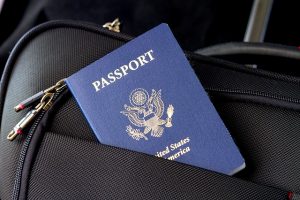NewsDesk @infectiousdiseasenews
During the first eight months of 2021, a total of 1,312 suspect yellow fever cases were reported in 367 Local Government Areas (LGAs) across all 37 States including the Federal Capital Territory in Nigeria.

31 confirmed cases have been reported, including two deaths among the confirmed cases.
The Centers for Disease Control and Prevention (CDC) say all travelers 9 months or older going to Nigeria should receive vaccination against yellow fever at least 10 days before travel. Documentation of vaccination against yellow fever is required by the government of Nigeria to enter the country.
If you received yellow fever vaccine 10 or more years ago, talk with a health care provider about getting a booster vaccination before traveling anywhere in Nigeria where there is a declared yellow fever outbreak.
Yellow fever is an acute viral hemorrhagic fever.
Symptoms of yellow fever (fever, chills, headache, backache, and muscle aches) develop 3-6 days after infection. About 15% of people infected with yellow fever virus will develop severe illness that can lead to liver disease, bleeding, shock, organ failure, yellowing skin (jaundice), and sometimes death.
Diagnosis is based on symptoms, laboratory testing, and travel history. Yellow fever virus spreads through the bites of infected mosquitoes.
- Cyclospora cases top 1000 in the US, 36 states reporting cases
- Madagascar plague update: WHO details
- Norovirus outbreaks at Georgetown University and the Rochester Institute of Technology
- Florida reports five additional Vibrio vulnificus cases, Brings total to 29 year to date
- California: Measles case investigated in Calaveras County child
- Vietnam reports nearly 50K dengue fever cases, MOH requires both to ensure prevention of COVID-19 and treatment of dengue fever
- Nigeria cholera outbreak tops 80K, New cases decreasing

